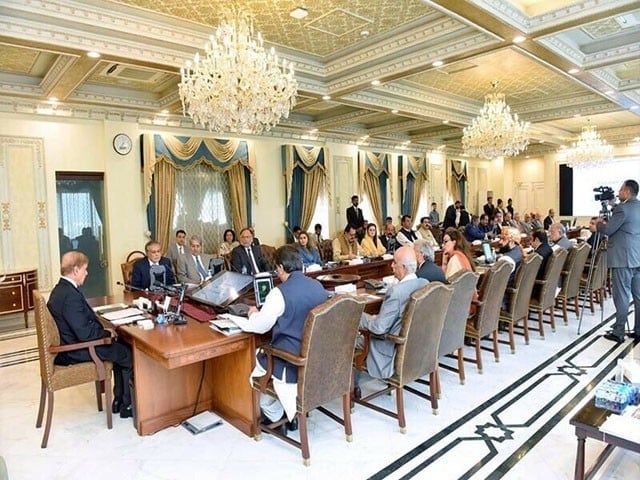ISLAMABAD: Constitutional amendments are in the spotlight as the federal cabinet prepares to meet today (Saturday). The focus will be on the recently approved draft of the 26th Constitutional Amendment after extensive discussions over the past month.
The proposed amendments received unanimous backing from both the government and opposition members. This announcement came following a session of the special committee led by Syed Khursheed Shah from the Pakistan Peoples Party (PPP). Key political figures from major parties attended, with the exception of Awami National Party’s Aimal Wali Khan.
The draft suggests forming a constitutional bench and outlines a parliamentary role in appointing the Chief Justice of the Supreme Court from a shortlist of three judges. It also calls for a restructuring of the Judicial Council and the Supreme Judicial Council, while limiting the Chief Justice’s tenure to three years.
If the cabinet endorses these constitutional amendments, they will move to the Senate for further approval. The upper house meeting is set for 12:30 PM, with the government ready to introduce these amendments.
According to Shah, major opposition parties, including Pakistan Tehreek-e-Insaf (PTI), tentatively agreed to the proposed changes, though no official signatures have been gathered. PTI Chairman Barrister Gohar Ali Khan clarified that discussions on the fourth draft are still ongoing. He emphasized that the final decision will be made after consulting with party founder Imran Khan, who is currently imprisoned in Adiala Jail.
Responding to PTI’s concerns, Bilawal Bhutto-Zardari of the PPP warned that he might take a “controversial path” if opposition parties do not support the amendments. He indicated that if consensus isn’t reached, he would seek support from the Pakistan Muslim League-Nawaz and other members.
Meanwhile, Jamiat Ulema-e-Islam-Fazl (JUI-F) expressed their stance against coercive tactics. Maulana Abdul Ghafoor Haideri stated that if pressured, the party would not back the amendments, regardless of the consequences.
To pass these constitutional amendments, the government needs a two-thirds majority in parliament. Reports indicate they currently lack 13 votes in the National Assembly and nine in the Senate.
Last month, the coalition government’s attempt to pass the amendments fell flat. The JUI-F leader’s refusal to support the judicial package left the proposal unresolved. Bilawal has mentioned that the government could still achieve the required majority through “conscience voting,” although consensus remains the goal.
Significantly, the Supreme Court recently overturned its prior stance on Article 63(A), related to lawmakers’ defection. This shift allows defecting votes to be counted, affecting the current political landscape.
Amendments Explained
The draft outlines the creation of constitutional benches within the Supreme Court through an amendment to Article 191. New Article 19-A specifies that these benches will consist of judges appointed by the Judicial Commission of Pakistan. The benches will be tasked with reviewing constitutional matters.
Regarding the appointment of the Chief Justice of Pakistan (CJP), the draft recommends a Special Parliamentary Committee to suggest names from among the three most senior judges. This committee will include members from both houses of parliament, ensuring proportional representation.
The amendments also propose limiting the Chief Justice’s tenure to three years. Upon completing this term, the CJP would retire regardless of age.
In terms of restructuring, the draft includes changes to the Judicial Commission for appointing Supreme Court judges, expanding its membership and adding a performance evaluation system for high court judges.
The proposed amendments to the Supreme Judicial Council suggest a more streamlined process for removing judges and enforcing a code of conduct.
This comprehensive package of constitutional amendments aims to reshape Pakistan’s judicial landscape. As discussions continue, the political climate remains charged, with each party navigating complex alliances and strategies.


